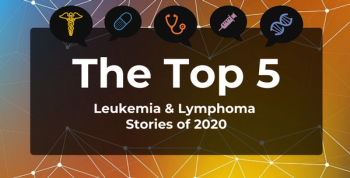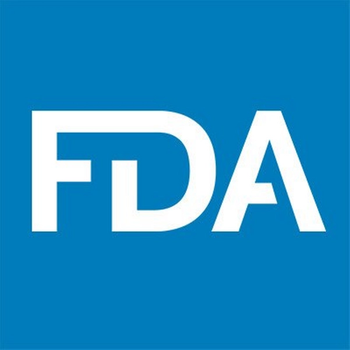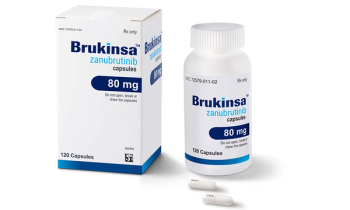
Anthony Fauci gave his insight on the coronavirus disease 2019 (COVID-19) for immunocompromised populations at ASH 2020, and leading organizations released fact sheets and recommendations.
Mary Caffrey is the Executive Editor for The American Journal of Managed Care® (AJMC®). She joined AJMC® in 2013 and is the primary staff editor for Evidence-Based Oncology, the multistakeholder publication that reaches 22,000+ oncology providers, policy makers and formulary decision makers. She is also part of the team that oversees speaker recruitment and panel preparations for AJMC®'s premier annual oncology meeting, Patient-Centered Oncology Care®. For more than a decade, Mary has covered ASCO, ASH, ACC and other leading scientific meetings for AJMC readers.
Mary has a BA in communications and philosophy from Loyola University New Orleans. You can connect with Mary on LinkedIn.

Anthony Fauci gave his insight on the coronavirus disease 2019 (COVID-19) for immunocompromised populations at ASH 2020, and leading organizations released fact sheets and recommendations.

Exciting new and ongoing developments in chimeric antigen receptor (CAR) T-cell therapies were covered at the 62nd American Society of Hematology (ASH) annual meeting.

Experts discussed "transformative" treatments and advanced genetic tracing in blood cancer at the 2020 American Society of Hematology Annual Meeting.

Lauren M. Corduck, who turned a diagnosis of ovarian cancer into a crusade to educate others with similar genetic mutations, died on December 24, 2020. She was 49.

Donald M. Berwick, MD, MPP, president emeritus and senior fellow at the Institute for Healthcare Improvement and former CMS administrator, discusses challenges in cancer care and health care awaiting the Biden transition team.

Panel testing for genetic variants linked to more cancers is cost-effective than just testing or BRCA1/2 mutations, says a clinical director for a women's health company.

Barbara McAneny, MD, founding partner of New Mexico Oncology Hematology Consultants, discusses why putting risk on oncologists is not the way to fix cost issues in cancer care.

Daniel F. Hayes, MD, offers definitions and an algorithm for clinicians to define clinical utility.

The findings could lead to a precision medicine approach to prostate cancer screening.

Results show the presence of PD-L2 in the tumor may be an independent predictor of survival outcomes for patients with advanced stage colon carcinoma.

The connection between obesity and colorectal cancer is well established, but the mechanics are not understood.

Barbara McAneny, MD, CEO of New Mexico Oncology Hematology Consultants, gives her insight on the potential pitfalls of bundled payment plans in oncology and how they could potentially work.

Gene-editing therapy in sickle cell disease and advances in multiple myeloma dominated hematology news in 2020.

A recent paper in Nature Cancer outlines a novel strategy for overcoming barriers to CAR T-cell therapy in glioblastoma by pretreating the vascular microenvironment.

Readers favored news about ibrutinib, the first chimeric antigen receptor (CAR) T-cell therapy in mantle cell lymphoma, and the effect of the pandemic on patients with chronic lymphocytic leukemia.

The coronavirus disease 2019 (COVID-19) pandemic is the biggest health care story of all time, but that doesn’t mean 2020 didn’t bring other medical and science news. Here are the most-read news articles on AJMC.com for the year on topics other than COVID-19.

Results presented earlier this month at ASH showed a 97% overall response rate, and progression-free survival had not been reached.

Managing the constantly evolving selection of therapies in oncology can be difficult, but is of the utmost importance to get the right treatment to the right patient, agreed a panel at Patient-Centered Oncology Care® 2020.

At the recent meeting of the American Society of Hematology, results from several studies involved the use of chimeric antigen receptor (CAR) T-cell therapy in multiple myeloma.

According to the final panel at Patient-Centered Oncology Care®, clinical pathways can create a new problem: if each payer tries to impose its own pathways, it’s an administrative and ethical nightmare.

In an interview with Evidence-Based Oncology™, City of Hope's Harlan Levine discussed the rising interest of employers in cancer care and how AccessHope can help them deliver better care where their employees live.

The keynote address at Patient-Centered Oncology Care® 2020 focused on the way practices have benefitted from the Oncology Care Model as the pandemic wears on.

A panel at Patient-Centered Oncology Care® 2020 discussed the challenges of a pandemic as oncology practice transformation initiatives continue on.

The panel could not reach consensus on what an expanded label might look like in an area where there are no approved therapies.

Barbara McAneny, MD, CEO of New Mexico Oncology Hematology Consultants, discusses the issues with placing risk on oncologists as they work to provide quality care to patients.

Karl Kilgore, PhD, a senior research scientist at Avalere Health, discusses Medicare data that offer insights on the overall costs of CAR T-cell therapy relative to transplants.

A late-breaking study presented at the American Society of Hematology annual meeting raises the specter of whether interventions can occur decades before a blood cancer would appear.

The treatment appeared to live up to its billing of having fewer off-target effects in studies presented at the American Society of Hematology.

Doctors who treated patients with sickle cell disease who received an infusion of gene-edited treatment have called it "transformative" for those who live with a chronic condition.

Three researchers presented results on COVID-19 therapies and data of importance to patients with hematological conditions.

259 Prospect Plains Rd, Bldg H
Cranbury, NJ 08512
© 2025 MJH Life Sciences®
All rights reserved.
